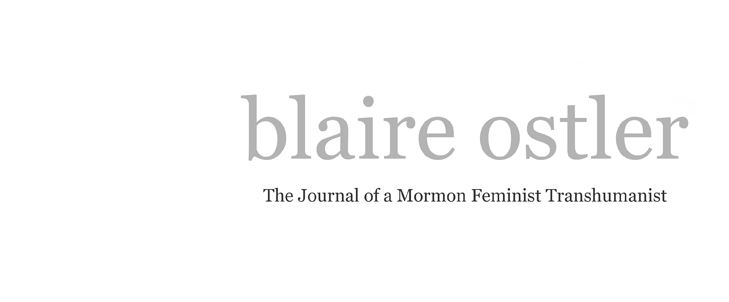It was early Sunday morning when Drew gently called from the bathroom, “Good morning, beautiful. It’s time to get up. We can’t be late for church.” He was already awake, showered, and dressed before I even opened my eyes.
Still lying
in bed, I opened my eyes and replied, “Or you could come back to bed and we
could have our own spiritual experience.”
He paused
ever so briefly, weighing his options before abruptly blurting out, “With God
as my witness, we are going to be on time to church! Get your beautiful ass out
of bed and get dressed.”
We exchanged
smiles as I begrudgingly got out of bed. Drew walked over to the closet and
pulled out a necktie, “I think I’ll wear my purple tie with my rainbow button
to church today. That way I can support the ordination of women and the LGBTQ+
community.”
Sometimes I
have to pinch myself after he says things like that. If you would have told me
ten years ago my husband would be supporting the ordination of women and the
queer community, I wouldn’t have believed you. Not my husband.
As I watched
him pin his button onto his jacket, my mind recalled an unpleasant memory.
It was 2008.
Prop 8 was all over the news. Drew and I had been arguing for years about homosexuality,
we didn’t need to be reminded of our blatant disagreement every time the news
came on, but there it was. Again.
Drew
commented while staring at the screen, “They want to get married now. Soon
they’ll want to be teaching it in schools.”
I routinely said,
“There’s nothing wrong with being gay.”
He
countered, “Did you read Elder Oaks’ conference talk on homosexuality I sent
you?”
I flatly
replied, “Yes.”
He
continued, “Blaire, the prophet has spoken about this. You need to get a
testimony for yourself. Being gay is wrong.”
I replied, “The
prophet is wrong. They aren’t much different from me.”
Drew
scoffed, “You’re nothing like them. You may be attracted to women, but you’re
not one of them.”
I interjected,
“I’m everything like them! How can you separate them from me? How can you
accept me and not them?”
He
responded, “Jeez, why are you so upset? You’re overreacting.”
I couldn’t
continue. We had fought too many fights. I couldn’t handle another, “Drew, I
don’t want to fight anymore. I have read all the books and conference talks you
have asked me to read. We’ve said all that can be said, and neither one of us
has changed.”
He
continued, “But Blaire—”
I cut him
off, “Drop it! I can’t even look at your face!” I exhaled, trying to regain my composure.
I continued softly and brokenly, “I really don’t want to fight anymore. I hurts
too much.”
Seeing my
frustration, he gently put his hand on my shoulder and said, “Okay. I’ll drop
it.”
Not another
word was spoken. We both knew our marriage wouldn’t survive it.
Years went
by with little conversation about homosexuality. It came up here and there. We
casually discussed it from time to time, but we stopped aggressively trying to
convert each other. Forcibly trying to change the other person only led to more
heartache. Instead, we focused on loving each other.
Somewhere
along the way, something changed. I don’t know exactly why or how it happened. You’d
have to ask Drew for the details, which I’m sure are many. But slowly over the
years, something gradually changed.
More time
passed. It was an average day of housework until my phone rang. I picked up,
“Hey, honey. How’s work going? I was just thinking about you.”
Drew spoke
slowly and quietly, “Blaire, do you realize you’re bisexual?”
I awkwardly agreed,
“Yes. I know I’m bisexual.”
He
continued, “Yes, but YOU are bisexual.”
I laughed. It
was as if every conversation we had over the last decade merged into a single
moment of clarity for him. I didn’t know how to respond. I had been bisexual
our entire marriage, but hearing him accept the label somehow made it real.
Smiling, I
said the only thing I could say, “I know I’m bisexual. What took you so long?”
Drew
answered with such sincerity, “I couldn’t . . . I didn’t . . . I’m sorry.
You’re a beautiful, wonderful, bisexual woman, and there’s nothing wrong with
you. I love you.”
I smiled and
replied, “I’ve waited a long time to hear you say that.”
He continued
with remorse in his tone, “Why did you stay married to me? All the things I’ve
said to you. After all these years, why?”
I paused, holding
back the tears, “Loving you seemed more important than agreeing with you.”
The memories
faded as I stood next to Drew watching him put on his purple tie for church. I
didn’t need to pinch myself. The moment was real. I commented, “ It’s still
weird to hear you say things like that.”
He replied,
“Say things like what?”
I continued,
“Your support for the queer community. I didn’t think I would ever hear these
things from you, but here you are with your purple tie and rainbow button.”
He smiled, “Thanks
for waiting for me.”
Hearts
change. People change. Beliefs change. Change is sometimes subtle, laborious or
slow, but part of enabling change means loving people enough to let it happen
on their terms. Sometimes you love them enough to stay. Sometimes you love them
enough to let them go. Sometimes you love them enough to listen instead of
speak. Sometimes you love them enough you put their desires before your own. Sometimes
you love them so much it hurts. Your love doesn’t guarantee the people you love
will change in the ways you want them to, but I do believe love is
the only way forward.
*Published at Rational Faiths on Tuesday, November 8, 2016
*Published at Rational Faiths on Tuesday, November 8, 2016


